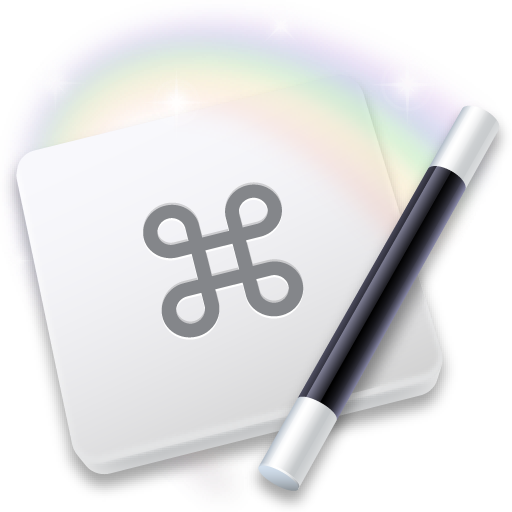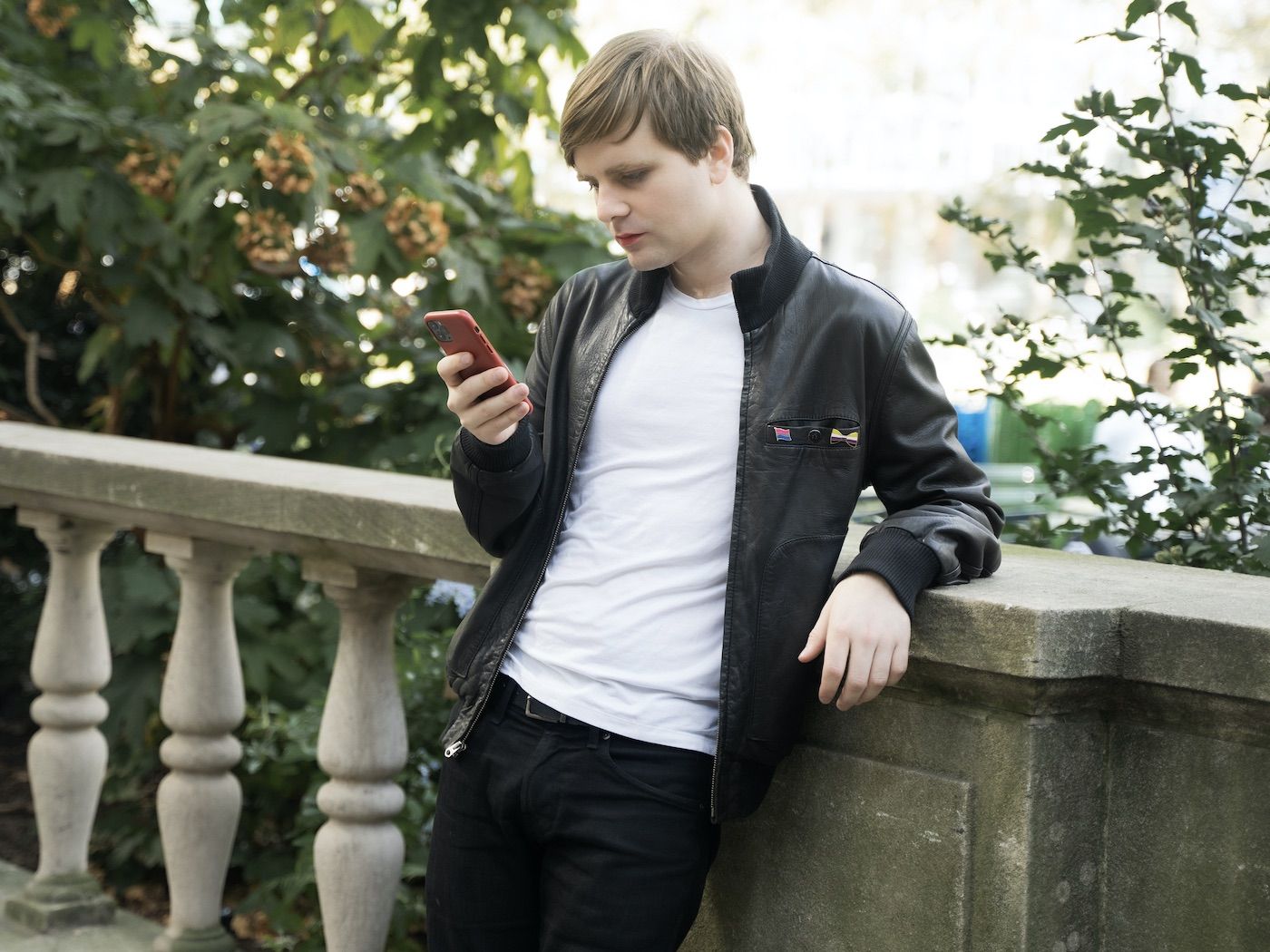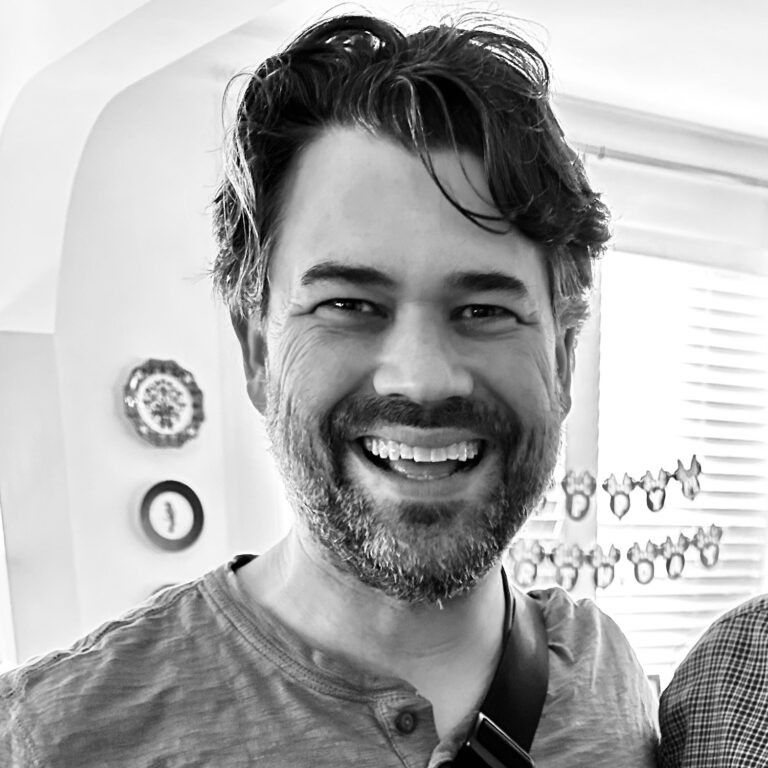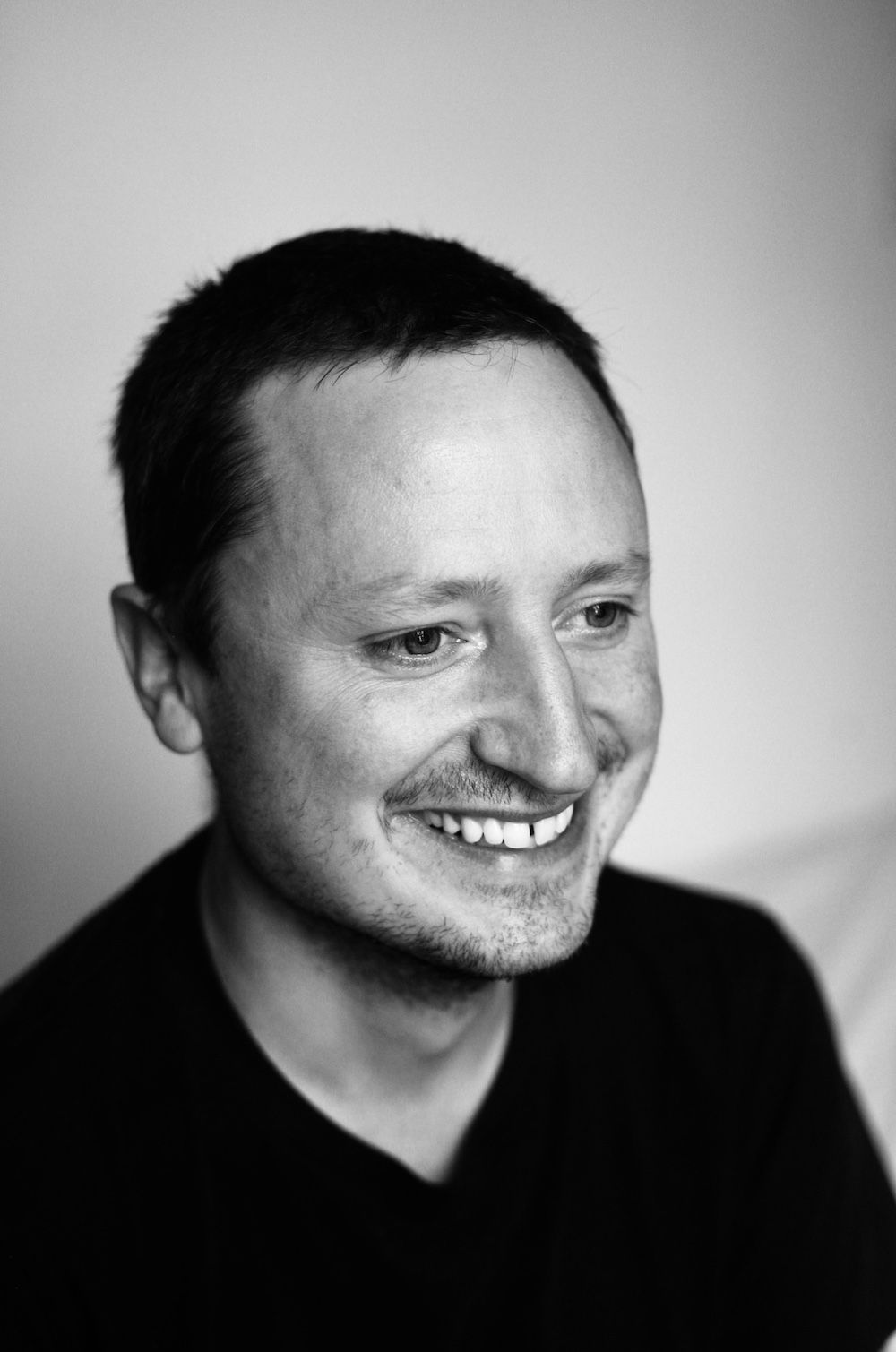An Interview with Russ Shanahan
An interview with Russ Shanahan, an iOS developer and creator of Happy Scale.

Russ Shanahan is an iOS developer and creator of Happy Scale, an app that helps you track your weight.
Who are you, and what do you do?
I’m Russ Shanahan, an independent app developer. I build Happy Scale, which helps people reach their health goals by helping them peacefully monitor their weight trends.
How did you get interested in that?
I’ve been interested in my relationship with obesity my whole life. I love thinking about the ways I can help myself reach and sustain a healthy weight.
What resources would you recommend for people that are interested in what you do?
Check out my app “Happy Scale” on the iOS App Store. I’m sorry to say it is not currently available for Android phones.
Happy Scale is my life’s work, and the best representation of what I’m trying to do in the world.
What tools & gear do you use? (Could be hardware, software, something else entirely.)
Computer: M1 MacBook Air (which I love) & Apple Studio Display mounted on a Jarvis Monitor Arm.
My desk: Jarvis Fully standing desk, Apple Keyboard, Apple Magic Trackpad, Studio Neat Panobook, Studio Neat Mark One pen, a cup of coffee & a bottle of water.
I use Xcode, Linear, Figma, Slack, GitHub, Tower and Kaleidoscope for code reviews and merges, and Mail.app + Rocket Typist for customer support.
Besides the tools, what routines or habits help you get your work done?
When possible, I try to avoid processed foods and get a good night’s sleep.
I use FoodNoms for evaluating my nutrition and AutoSleep for monitoring and improving my sleep.
I intermittent fast. These days I typically do a 16:8, though I did 20:4 for a long time. For years, I used an app to track it, but I found I was getting too obsessed with the app, so now I just eyeball it.
I lift weights with a personal trainer 3-4 times per week.
I like to make a daily checklist of to-dos in my Panobook and check off items as I go.
I like inbox zero. I’ll usually end the day with zero emails across all my inboxes, though I will occasionally leave emails there for several days as a “to do.”
I subscribe to newsletters, but snooze them until the weekend. I try to unsubscribe/block most incoming mail that isn’t important or customer support.
I occasionally enjoy meditation, going for walks, and self-hypnosis.
I often listen to WRTI Jazz while working. It helps calm the chatter in my mind.
What sets Happy Scale apart from other apps that track weight, and why do you think these differences are important?
Happy Scale is meant to empower people. To reduce the anxiety around weighing yourself, we use averages to smooth out the fluctuations of daily weighing and predict your true weight trend. We help you see where your weight will be in the future if you keep up your current efforts. We even let you make subtle changes, like controlling the color used for weight gains, so that you can protect your psychology when things aren’t going as planned.
I believe that people who struggle with their weight can take control of their lives and have a healthy body. I believe that the key is about feeling at-peace about the day-to-day journey and maintaining a long-term perspective.
You've been developing Happy Scale independently for more than a decade now. What do you think are the most important lessons you learned between then and now?
• Listen to your customers. Getting the ball rolling with the product is your job. But once it gets traction, your customers will guide you towards understanding what it should become.
• Refinement is just as important as addition.
• Work in “seasons” where you have a single focus to make peace with the nagging feeling that there’s never enough time for it all.
• It’s okay to ship when it’s imperfect. In fact, taking a break from something often provides the distance needed to realize how it can become better. You can always take another pass down the road.
• Protect your energy, always. The only way you’ll be in it for the long haul is if you enjoy the journey.
• Building a company is creative. Every time you mindlessly copy the blueprint of every other company, you miss a chance to think about how you could do it differently.
• It really always does take longer than you thought it would, and it’s okay to be at peace with that.
• If you do this for enough years, you make friends with some great people. I had no idea how life-changing that aspect would be until after-the-fact.
• Find the folks who are in your “cohort” and are working on similar problems to you.
Going independent is the dream for a lot of people. The benefits seem obvious – working on your own time and for yourself. What are some of the pitfalls or shortcomings people should be more aware of?
It was a dream for me, too. And it many ways, it has been a dream-come-true.
I was surprised by how hard it is for me to be both the employer and the employee. When I was an employee, I saw that relationship as being adversarial. When I was trying to become indie, I was adversarial with myself, and used a lot of negative self-talk and negative visualization to motivate myself to keep going. Once I became indie, I was not sure how to “graduate” from this adversarial way of thinking. And I really felt like I needed to address it somehow, because I was concerned that all this negative self-talk would seep into the way I parent or the way I would treat employees that I might hire down the line. Learning to “love myself,” as it were, and find a way to love doing work while being kind with myself, was a long journey that I am still on.
Another pitfall is that it can be lonely, especially in the beginning. I’ve come a long ways in addressing that, but it doesn’t happen overnight.
If you want to be good at it, it asks a lot of accountability and responsibility of you. Often times, the most important thing I could be working on and the thing I want to work on are not the same thing. You need to come up with a system that works for you.
These are all “good problems,” so no complaints here. But I certainly didn’t anticipate them when I was getting started.
A few years ago, you used Happy Scale to lose more than 100 pounds – a phenomenal feat – which you also detailed in a tweet thread. Losing weight is probably the most popular New Years resolution, and the new year is nigh. What were some of the lifestyle changes you made to help you lose that weight?
I found that Intermittent Fasting helped me a lot. For anyone interested, I recommend Gin Stephens’ book Fast. Feast. Repeat.
I was also using cardio to lose weight. I started doing elliptical 1 hour per day. Towards the end, I was doing elliptical for 2 hours per day.
Unfortunately, the cardio strategy wasn’t sustainable. There were two issues. First, it took a ton of time. Second, I found that I didn’t like the way I looked at the end of the journey, because I didn’t have much muscle.
I decided I wanted to switch into weight training with a personal trainer at that time, but it was early 2020. Due to world events, I put my personal trainer goal on pause.
In March 2022, I started working with a personal trainer on strength training. I’ve been doing it for 7 months now. I’ve gained about 35 of those 100 pounds back, but I don’t worry about my weight too much. For this season of my journey, I am focused strength training and building muscle.
I feel like the number one thing someone can do is to just get started. It’s a journey, and it’s not a straight A to B. You might, like me, hit your weight goal and discover that you need to set a new goal. That is okay. Just like becoming indie, we never know what the journey is going to be like when we’re at the starting line. We just need to develop the skill of showing up and trying to figure out what progress looks like today.
How do you relax or take a break?
I like to watch movies and TV shows. I’m really into horror these days. I also love to talk with friends and do jigsaw puzzles.
Whose work do you admire, or that inspires you?
Brian Mueller. The way he has evolved and refined CARROT Weather over time has been so cool to witness. His holistic approach inspires me to become a more well-rounded product person.
Curtis Herbert. I’ve found his blog posts on Slopes Diaries and tweets about his work to be thought provoking and illuminating. His honesty and clarity inspires me to think more honestly and clearly.
Daniel Gauthier. His latest app, Up Ahead, is a work of art. So many little delightful details. He inspires me to find ways to bring delight into my product.
Charlie Chapman: His app, Dark Noise, is a great example of beautiful simplicity. He inspires me to find the joy in my day-to-day process.
Where's the best place for people to find you & your work?
On Twitter (russshanahan) and on the App Store (Happy Scale).




